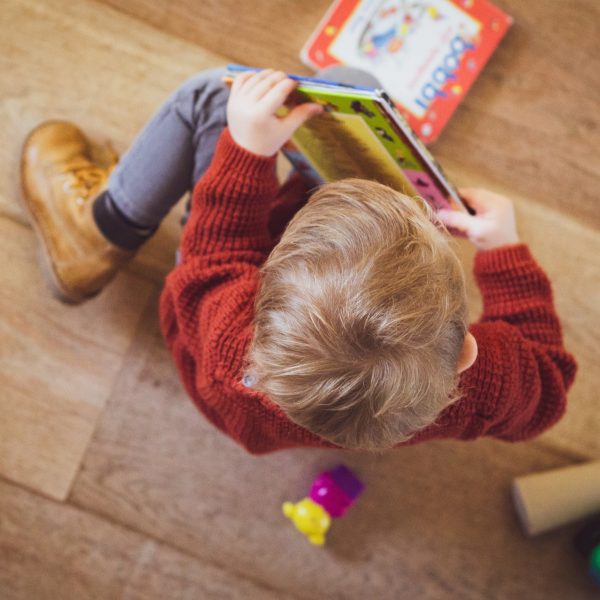Even as young as five, girls are being held back by pressure of perfection

A new global study from the LEGO Group has revealed that girls feel intense pressure to be perfect and believe adults give boys more recognition for their creative work, with parents saying this trend continues into adulthood.
Surveying over 61,500 parents and children 5-12 years of age across 36 countries, the data calls for societal change to ensure girls can fulfil their creative aspirations and ‘play unstoppable’, with researchers finding girls as young as five years of age are having their creative confidence stifled.
While three quarters of the children surveyed felt confident about their creativity at five years of age, this number declined rapidly as they got older, and felt more pressured about making mistakes.
The parents surveyed supported this view, with 71 per cent saying their girls are more likely to hold back developing their ideas because of these pressures.
Parenting researcher the Harvard trained Jennifer B Wallace notes that when children fear failure it can hamper their willingness to explore and think outside the box, which in turn impacts the key skill of creative confidence, a hindrance which can carry through to adulthood.
Creative confidence is the self-assurance to generate ideas, take risks and contribute unique solutions without fear of failure, and is considered a cornerstone of well-being through its capacity to boost self-esteem, reduce stress, and increase happiness.
With the world of work increasingly relying on fresh and innovative ideas, creative confidence has also been ranked as a top skill for future workplaces according to the World Economic Forum.
Transformative language
Fortunately, it is possible to reduce these statistics, researchers note, encouraging parents, educators, and all those who interact with children to consider their language more carefully, and to understand that everyday language is playing a role inhibiting girls’ from freely expressing themselves creatively.
Nearly two thirds of the girls who participated in the survey noted that the language they hear makes them feel fearful about making mistakes, leaves them feeling that they should not experiment, or reinforces a need to be perfect.
The LEGO Group findings also highlighted a significant societal bias disproportionately impacting girls, with parents noting a prevailing trend where gendered descriptions are commonly used to assess the creative outputs of male and female creators.
More specifically, society is around seven times more likely to attribute terms like “sweet”, “pretty”, “cute” and “beautiful” exclusively to girls while terms such as “brave”, “cool”, “genius” and “innovative” are twice as likely to be attributed exclusively to boys.
Over half of the children surveyed believed that the adults in their lives listened more to the creative ideas of the boys’ than those of the girls, while nearly 70 per cent of parents agreed that society takes male creators more seriously than females.
More Than Perfect
To further explore these concepts the LEGO Group has created a new short film – More Than Perfect – which outlines the effect that language can have on girls’ creative confidence, as they are taken through two different challenges and presented with some of the global research findings. The film allows the audience to hear powerful reflections from the girls and captures parents’ reactions.
“What we say early sets in deep,” Ms Wallace said.
“Biased language reinforces traditional gender roles, which can play a role in limiting girls’ creativity and perpetuating systemic inequalities. It can confine them to narrow categories, such as valuing aesthetics over innovation. This implicit bias can hamper girls’ confidence and restrict their opportunities in male-dominated fields. Challenging these biases is essential for fostering an inclusive society where girls can fully explore their creative potential,” she added.
“Every girl deserves the freedom to explore her creativity without fear or pressure.”
Further resources and support
In response to the findings a number of resources and initiatives have been developed including:
- 10 Steps to Fostering Creative Confidence which has been developed specifically for parents, caregivers and grown-ups looking for tips & tricks on how to help nurture creative confidence in children.
- Creativity at Home Online Workshops feature inspiring talent including dancing sensation Dianne Buswell, Space Communicator Alexandra Doten (aka Astro Alexandra) and gaming pioneer Kennedy (aka Cozy K). Each creator will host an online workshop at www.LEGO.com/Creativity-Workshops throughout the year where girls can be inspired to build a photo frame, bedroom door sign, rocket pen pot, imaginative creatures, gaming accessories and much more.
- Social Emotional Learning Content for Kids on LEGO Life: Designed to help children develop creative confidence and overcome creative blocks as well as fear of failure, the LEGO Group has worked with Peppy Agency and a group of creators to produce new engaging content coming to LEGO Life in April 2024.
- Inclusive Language Training for LEGO Employees: Extending on its ongoing work to remove harmful gender bias from LEGO products and adverts, the LEGO Group is rolling out new internal language training focusing on the importance of inclusive language. With this commitment, the company wants to acknowledge that language has the power to change culture.
- New Initiative with Save the Children and the LEGO Foundation: Building on a long-lasting partnership centred around the importance of learning through play, the LEGO Group, the LEGO Foundation and Save the Children launch a new initiative called Girls Unstoppable. Being implemented in China, Vietnam, Indonesia and Mexico – the programme aims to reach 330,000 girls indirectly throughout 2024-2026, while also raising global awareness of barriers holding girls back. Girls Unstoppable will invest in the creative power of girls, ensuring they feel comfortable speaking up about things that matter to them, have safe spaces to come together in, and have fun unleashing their creative potential to become stronger advocates for their rights and unstoppable women of tomorrow.
“In an increasingly AI-driven world, creativity is the magic that will set us apart,” Alero Akuya, VP of Global Brand at the LEGO Group said.
“LEGO play, whether it’s free building or instruction-based, helps develop essential skills that are equally relevant to all children in today’s world. Through building and rebuilding, it becomes a bedrock for creative confidence, courage and self-belief. And this is key, because when girls have the space and freedom to express themselves fully, they are unstoppable.”
For more information go to LEGO.com
Popular

Workforce
Policy
Quality
Practice
Provider
Research
ECEC must change now, our children can’t wait for another inquiry
2025-07-02 07:47:14
by Fiona Alston

Workforce
Practice
Provider
Quality
Research
Supporting successful transitions: Big moves, big feelings
2025-06-26 11:00:30
by Fiona Alston

Practice
Quality
Research
When joyful autonomy matters so much more than curriculum outcomes
2025-06-25 09:30:36
by Contributed Content













